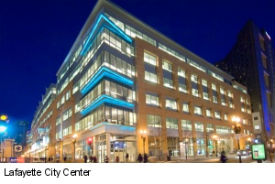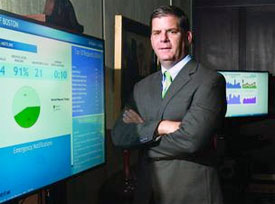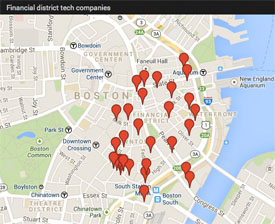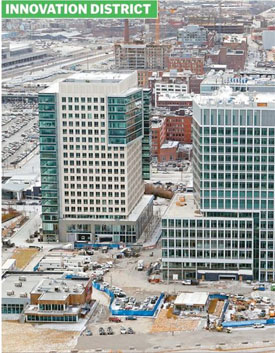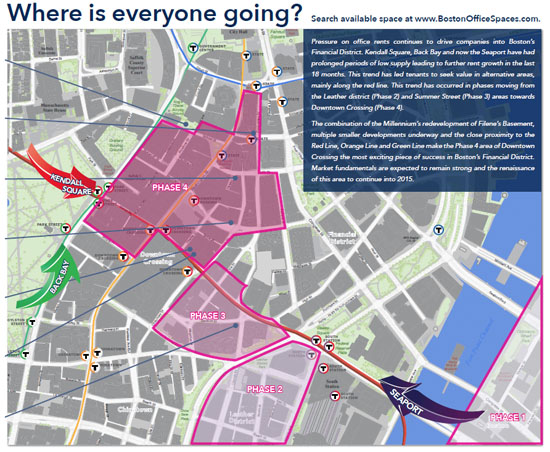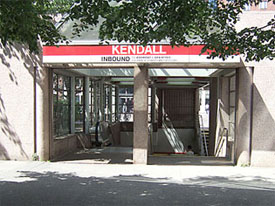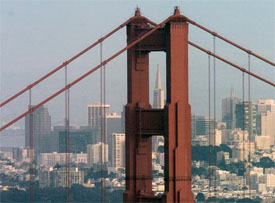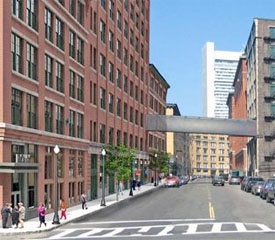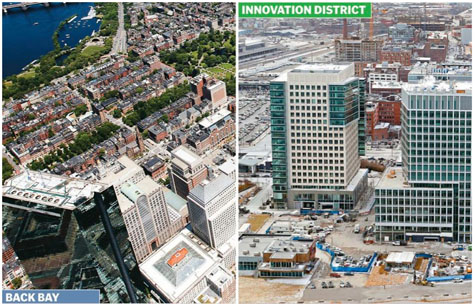Downtown Boston is the largest concentration North of New York City and is in the midst of strong rent growth across the Class A and B segments. Today’s technology and creative services companies are looking for easy access to public transportation combined with an open floor plan.
From Banker & Tradesman:
For the third straight year in 2014, the Greater Boston office market recorded more than 2 million square feet of positive absorption, in a steady expansion that boosted occupancy rates at properties ranging from suburban office parks to converted warehouses and downtown high-rises.
“There’s more office product than ever and it’s getting filled in a much more dense way than ever before,” said Brendan Carroll, vice president of research for Avison Young. “If you’re wondering why the T seems more packed, or why you can’t get a cab to take you across the (Fort Point) Channel, that seems to be the reason.”

